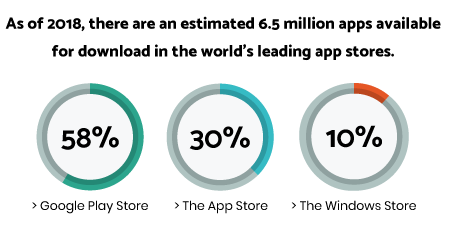If you want to create a mobile application that taps the two iOS and Android platforms, there are several options for which development technique to use.

Native or hybrid?
The purpose of this article is to help you make the right choice, giving you an overview and an explanation of the two possibilities.
The question we want to answer through this article is: “When thinking about developing a mobile application, is it better to build a native application or choose the hybrid route?”
For many companies, large or small, cost plays a significant role in making decisions about selecting mobile application development services and determining the approach to developing a project.
Should you choose a hybrid development approach or develop native applications? Depending on your business goals, this decision could have a major impact on the success of your mobile strategy.
What is a native app?
Native mobile applications are built for specific platforms and are written in languages that the platform supports, such as Swift and Objective-C for iOS and Java applications for original Android applications.
Native applications have the best performance and are the most used in the application market because users prefer them for their speed and response.
These types of applications are more interactive, intuitive, and provide a better overall user experience.
What is a hybrid app?
A hybrid application can essentially do what HTML5 does, except it also includes native application features. A wrapper acts as a bridge between platforms to access native features.
What approach should you choose?
In our opinion, the development of a single application for all platforms is an advantage of hybrid applications, as it shortens the production time, enabling a faster route to market.
The main advantages of hybrid development are:
- Write the code once and you can access it from any platform. For native applications, you need to develop separate applications for each operating system;
- You can develop applications for all platforms with the same team;
- Hybrid applications can achieve the same performance and speed as native applications;
- Consistent and similar user experience available on all platforms, regardless of user migration between platforms and devices;
- Production costs are down 40% compared to native development. Also, the cost of maintenance and deployment is lower by about 40%;
- It’s easier to update the application simultaneously on all platforms because you have a unique code base and a single development team, which will allow you to better control the new releases.
